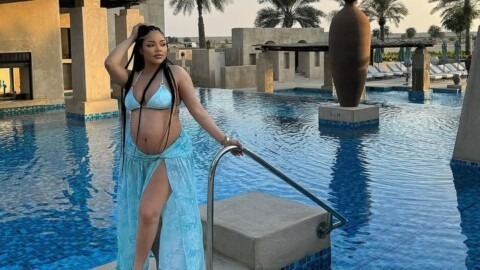The ongoing trial of Jude Okoye, former manager of the iconic Nigerian music group P-Square, took a dramatic turn on Monday at the Federal High Court in Lagos as his younger brother, Peter Okoye, gave a revealing testimony against him.
Jude is facing a seven-count charge of alleged money laundering involving N1.38 billion, $1 million, and £34,537.59. The case, being prosecuted by the Economic and Financial Crimes Commission (EFCC), stems from a petition submitted by Peter himself.
Also charged alongside Jude is his company, Northside Music Limited. The courtroom, presided over by Justice Alexander Owoeye, listened intently as Peter detailed a complex family and business fallout that has now become a legal battle.
Peter, led in evidence by EFCC prosecutor Aso Larry, gave a chronological account of how the popular music group P-Square, formed with his twin brother Paul, had undergone various managerial shifts before Jude took over as their manager.
“P-Square started in 1997 or 1998. We had several managers before Jude,” he said. “There was Chioma Ugochi during our school years, and the late Bayo Odusami, who managed us for five years. My twin and I even managed ourselves briefly before we brought Jude in as manager and allowed him to operate through Northside Entertainment Ltd.”
Peter went on to explain that although Jude initially managed the group effectively, disputes began to surface over how business operations were handled—particularly Jude’s exclusive control over all the group’s bank accounts with Ecobank, Zenith Bank, and FCMB.
According to Peter, tension grew around financial transparency and power dynamics, which led to the group’s disbandment in 2017. They were apart for nearly five years until their reunion in November 2021.
During their earlier years, Peter said, “We started having issues with how Jude ran the business, especially the fact that he was the sole signatory to our accounts. It became difficult to track how our money was being managed.”
He recalled how their lawyer at the time, now Aviation Minister Festus Keyamo, intervened with a financial sharing formula to restore some balance. Peter cited a specific instance during the construction of their houses in Ikoyi, noting that Jude was the only one authorized to release funds for the project.
“At some point, the financing stopped for six months, and when I asked Jude and Paul why, they said, ‘As you leave P-Square, you leave the money.’ That response drove me to Keyamo,” he told the court.
After the group’s reunion and Jude’s exit as manager, Peter said he began to ask more questions—especially regarding royalties and digital earnings.
In 2022, when fans and associates started asking for financial reports related to their recent album, Peter approached Jude for access to the backend systems and account statements. However, he was denied.
“Jude wouldn’t let me see the numbers. That’s when I suspected something wasn’t right,” he explained. In his search for answers, Peter reached out to account officers at Ecobank and Zenith, but the responses he received were evasive. Eventually, he was told by the Zenith account officer that Jude had instructed the bank not to share any financial information with him.
Peter further alleged that Jude and Paul had already handed over their music catalogue to a company named Mad Solution, who paid him over $22,000 three months after the deal was signed.
The payment came as a surprise to Peter, who had not been included in the decision-making process. “I had no idea they gave our catalogue to another company. I only got a payment without any breakdown or prior discussion,” he said.
This revelation, Peter testified, was further evidence of how he had been sidelined and financially isolated within the group’s operations.
The most damning part of Peter’s testimony came when he recounted his discovery on the Corporate Affairs Commission (CAC) website.
He said that in a bid to better understand the financial dealings behind Northside Music Limited, he did a company search and was shocked to find that the business was registered with only Jude and his wife as directors.
More notably, Jude’s wife held 80 percent of the shares, while Jude himself held the remaining 20 percent. “It was like uncovering a secret company—one we never discussed as brothers or band members. This wasn’t just a business decision; it was betrayal,” Peter stated emotionally.
Throughout his testimony, Peter painted a picture of broken trust, strained family ties, and financial mismanagement that went unchecked for years.
He stressed that his actions were not borne out of malice but a need for accountability and transparency. “This isn’t just about the money. It’s about doing the right thing—for myself, for our legacy, and for those who supported P-Square from the beginning,” he said.
The case continues as more witnesses are expected to testify, with the court set to dig deeper into the financial entanglements that have turned a once-powerful musical family into courtroom adversaries.







